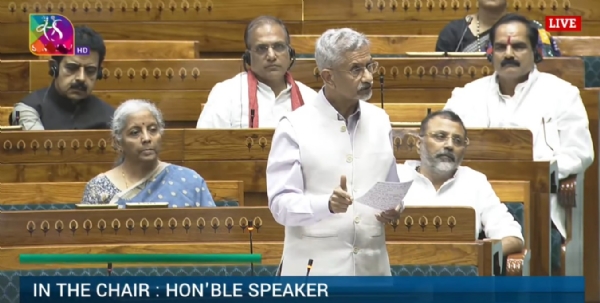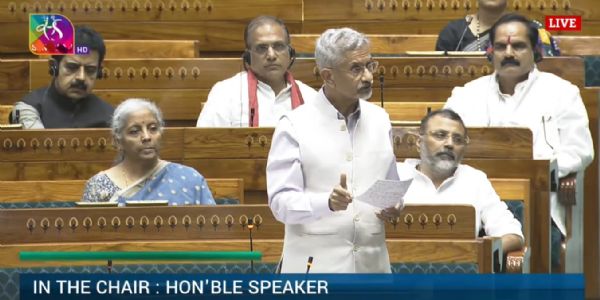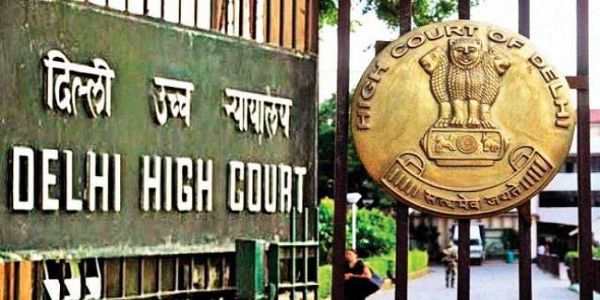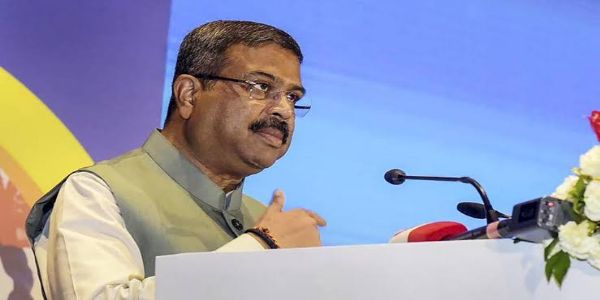
New Delhi, July 28 (HS): During a discussion in Lok Sabha concerning Operation Sindoor, EAM Dr. S. Jaishankar refuted U.S. President Donald Trump's claims regarding his involvement in a ceasefire between India and Pakistan on Monday. He clarified that there had been no communication between Prime Minister Narendra Modi and Trump between April 22 and June 17, thus dismissing any suggestion that trade discussions influenced the ceasefire agreement. Jaishankar explained that Pakistan sought a ceasefire through different channels after India’s actions on May 10 that prompted a Pakistani response, which India would consider officially if requested through the Directors-General of Military Operations (DGMOs). India halted its counter-attacks only after receiving a formal ceasefire request from Pakistan.
Jaishankar shared that he received a warning from U.S. Vice President Mike Pence on May 9 about a possible Pakistani attack, to which PM Modi indicated a readiness to respond appropriately. He also noted that communication between Modi and Trump did occur on June 17 about the Pahalgam attack, contradicting Trump's claims about prior discussions. Following his remarks, opposition members expressed dissent, which prompted strong criticism from Home Minister Amit Shah regarding their reliance on a foreign leader’s statements over those of an Indian minister.
Jaishankar emphasized India’s strategic advancements, asserting the establishment of a new 'normal' in which terrorism would be met with decisive action and that India would not cower in the face of nuclear threats. He commended India's diplomatic efforts after the Pahalgam incident, highlighting widespread international support for India’s stance against terrorism during Operation Sindoor, with 193 out of 196 countries backing India. He considered the U.S. designation of the Terrorist Resistance Front (TRF) as a terrorist organization to be a diplomatic victory, aided by allies such as Germany and France.
In response to opposition allegations about IMF aid to Pakistan following the 26/11 attacks, Jaishankar pointed out the substantial financial assistance that Pakistan received from the IMF post-attack. He unequivocally stated that Trump did not play a role in negotiating a ceasefire and that there was no basis for claims linking trade negotiations with the ceasefire process. The Congress party, through member Gaurav Gogoi, had previously claimed that Trump made numerous assertions about his influence in achieving a ceasefire.
Moreover, Jaishankar reiterated India's position on rejecting Trump's mediation offers regarding Pakistan's occupation of Jammu and Kashmir, underscoring that Modi communicated this to Trump during their mid-June conversation. He reaffirmed that the U.S. had no impact on India's diplomatic processes regarding Pakistan and remarked on Trump's attempts to link trade relations with the ceasefire being unfounded.
Jaishankar’s assertions resonated with earlier statements he made, particularly on July 1, highlighting ongoing communications with U.S. officials on the security situation in the region. He recounted receiving information about Pakistan's readiness for dialogue shortly after India demonstrated significant military actions in response to terrorism.
Throughout the discussion, Jaishankar emphasized that India's response to terrorism would remain firm and relentless, reiterating the right of India to defend its citizens. He stated that it was crucial to send a strong message post-Pahalgam, indicating that serious consequences would follow any breaches concerning terrorism. The actions taken under Operation Sindoor were described as calculated and aimed solely at neutralizing terrorist infrastructure, receiving overwhelming international support in the process.
Hindusthan Samachar / Jun Sarkar







